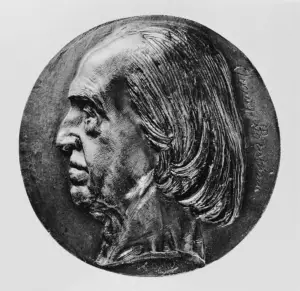In this post and accompanying video, I give a brief overview of Jeremy Bentham’s ideas on Utilitarianism.
Table of Contents
Jeremy Bentham
Jeremy Bentham was a philosopher and reformer who was born in England in 1748. Bentham was a very prolific writer who left behind a vast number of papers. He was also quite an eccentric figure, who had relatively radical ideas for his time that have inspired many that came after him.
Jeremy Bentham was interested in ways to reform the legal system and in developing a scientific set of principles that could be used to organize and guide political decisions. To that end, he used the theory of modern utilitarianism. In fact, Bentham is considered to be the father of utilitarianism, not because he originally proposed the idea, but because he was the one who brought all of the ideas together and consolidated them. Utilitarianism is a moral theory – it talks about what is right, and what is wrong, and based on what is right and wrong, how people and institutions should behave and make decisions. I’ll go through several key points of the theory.

The Principle of Utility and of the Greatest Happiness
First, there is the principle of utility and of the greatest happiness, which states that all behavior should be aimed at producing the greatest utility. Utility is basically wellness or happiness. Ultimately, the goal of behavior is to achieve well-being or happiness. And so the principle of the greatest happiness holds that any act should always intend to achieve “the greatest happiness for the greatest number of people.” So in that sense, utilitarianism gives us a sense of direction for what we should do and what decisions we should make, namely the decision that produces the greatest happiness for the greatest number of people.
The Felicity or Hedonistic Calculus
But, how do we know what act produces the greatest happiness? To determine that, Jeremy Bentham introduced the “felicity calculus,” which is also known as the “hedonistic calculus.” This calculus is a kind of algorithm that takes into account the pleasure and the pain of a particular act for each person who is affected by that act. According to Bentham, maximizing pleasure and minimizing pain governs everything that we do, say, and think. If an act produces more pleasure than pain, it is right. And if an act produces more pain than pleasure, it is wrong. Bentham believed that everything can be quantified and that one can come up with a scientifically proven system to calculate how much pleasure and pain one person gets from an act and how much pleasure and pain another person gets from that same act. In that way, the costs and benefits for all people can be calculated so that ultimately, the greatest happiness for the largest number of people can be achieved.

The Consequences of Behavior for the Whole Make It Right or Wrong
Another key point of Jeremy Bentham’s utilitarianism is that an action is judged by its consequences only, not by the intention behind it. Bentham was a consequentialist, and utilitarianism is quite radical in the sense that it deals only with the consequences of behavior: if an act brings more pleasure than pain, then it is good. And if an act brings more pain than pleasure, then it is wrong. It doesn’t matter whether or not the motivation behind the act is good or bad. So if someone intends to do something bad, but the result is good then utilitarianism is only interested in the good consequence, not in the bad motivation that was initially behind it. Thus, an act is judged by its consequences only, not by the intention behind it.
And the utilitarianists were not just interested in the consequences that an act has for an individual, but in the consequences for the entire society. So an individual’s pleasure and pain has to be weighed against the combined pleasure and pain of society to determine if an act is right or wrong. And that is why countries need to have a government. Because there can be a difference between where the optimum for an individual lies, and where the optimum for society lies. So maximizing pleasure and minimizing pain does not just apply to an individual, but to the whole of society and for all people who are affected by a certain act. And according to utilitarianism, every person is just as valuable as another person. No one counts as more than another person.

What Does This Mean for the Criminal Justice System?
Jeremy Bentham developed ideas about many aspects of society, politics, and law, including for example about democracy, religion, animal rights, economics, and the criminal justice system. One of the criticisms on Bentham’s work is that his focus on developing a set of scientific principles and utilitarianism meant that he completely ignored individuals as being persons and human beings. Some present-day psychologists have suggested that one of the reasons for this may be that Bentham did not get along that well with other people and likely suffered from Asperger syndrome, which is mild autism spectrum disorder.
Also, Bentham is considered to have been an armchair philosopher. Meaning that his work was largely theoretical and based on his own ideas, without being tested in the real world.
![]()
Nevertheless, Jeremy Bentham is regarded as one of the greatest thinkers of all time. He died in 1832, aged 84, leaving behind a vast number of writings. It is said that he wrote between ten and twenty sheets of manuscript per day. His manuscripts are being transcribed by The Bentham Project at the University College London.
At the end of his life, Bentham’s body was dissected and preserved on his instructions and it is now on permanent display at the University College London.
If you’re interested in reading more about Bentham’s ideas, check out a quick overview of his ideas about the famous Panopticon here.
You can find more information about the Bentham Project at University College London (UCL) here.

